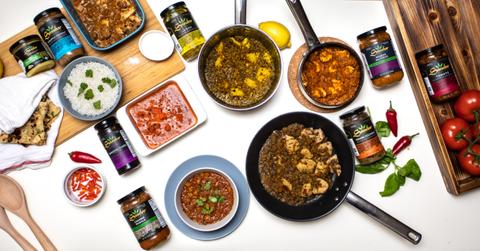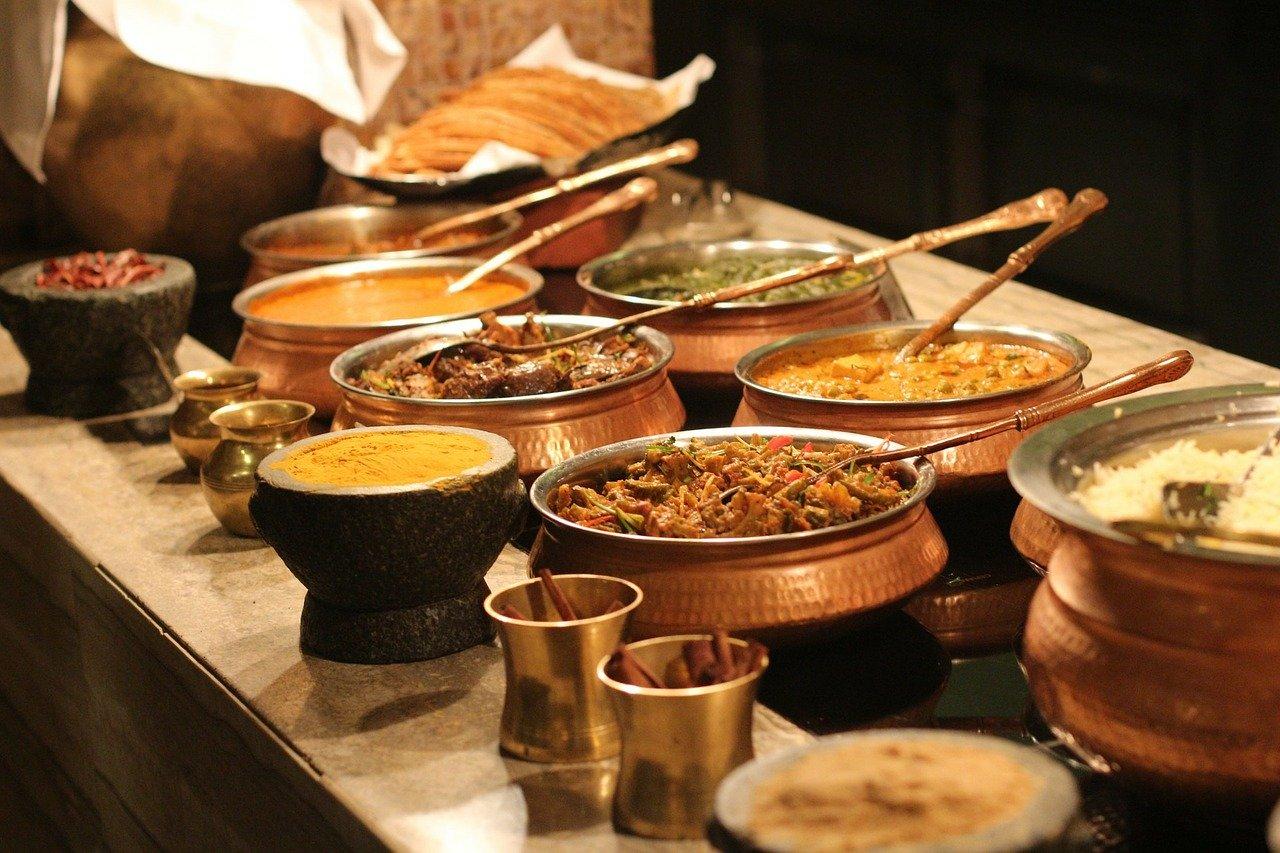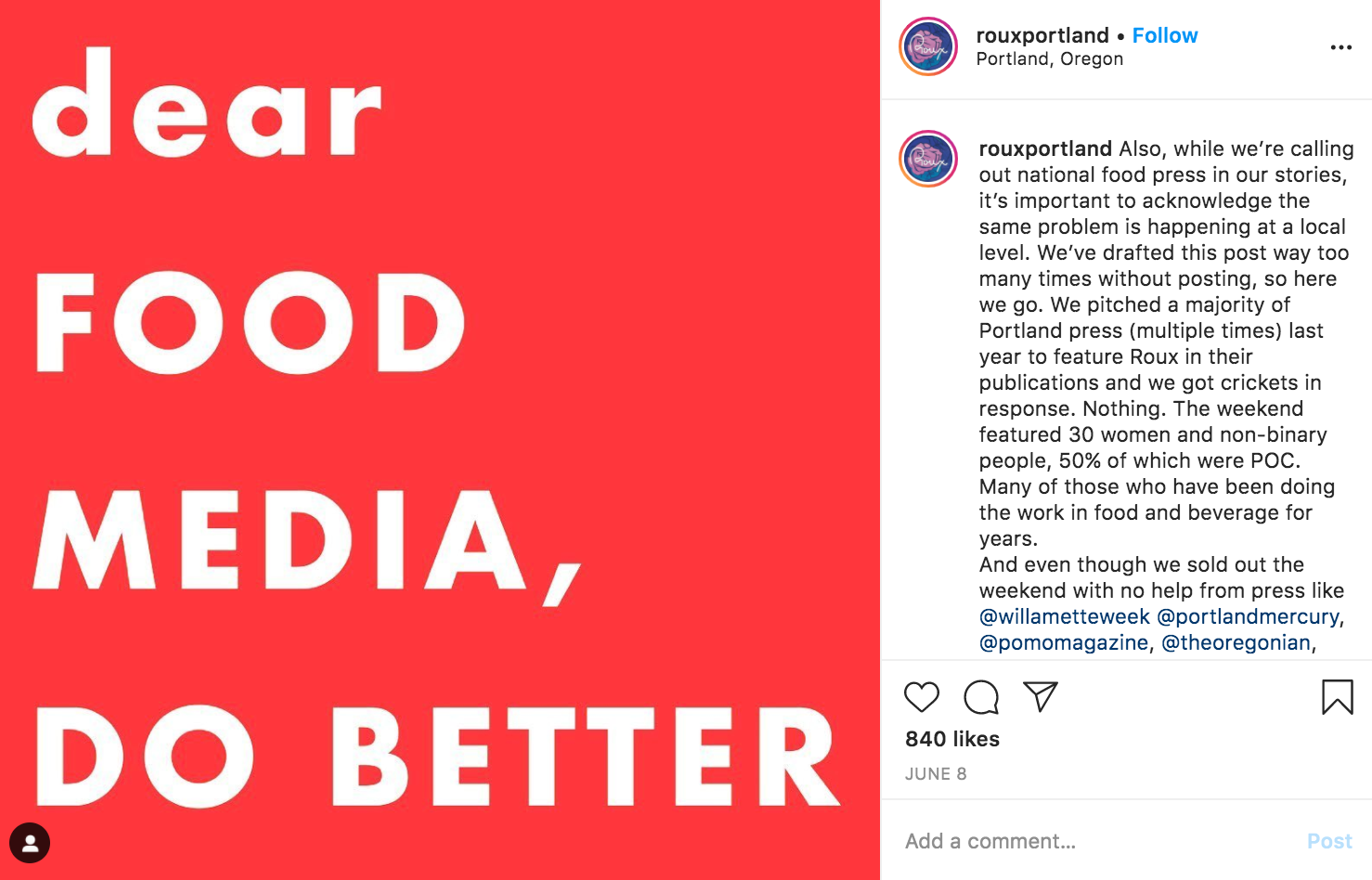How I Fight The Racism In The Food Industry And Stay True To My Indian Culture

Introduction to principles of marketing taught me to always ask myself, “Who is your target market?” This exercise was followed by a series of questions about defining the audience’s gender, age, demographic and household income. I looked around the room at my classmates for inspiration. As most men raised their hands, and more studious women rapidly wrote down notes, I sunk into my sweat pants refusing to raise my hand.
Later in my college career, I learned a software by Nielsen could do all that research for me. Entrepreneurship 101: The Business Model Canvas taught me to describe my ideal customer–what they looked like, where they would shop, their pain point I was trying to solve. When we gathered into groups, I became the “educator” among my peers. I challenged them to think of how the female consumer shopped, emphasizing that a hypothetical service did not tailor to the needs of minority groups. I even made sure that the name of a product never sounded too gender-specific.
What many of these American business courses failed to educate students about was the importance of diversity and inclusion in marketing. We are taught to tailor to the American consumer in order to generate sales. As a second-generation Indian-American woman, I took the responsibility to elevate digital marketing, optimize online sales, and create a brand that would help anyone from any culture cook Indian food. When I finally helped my South Indian father launch the e-commerce site for our company, Sambar Kitchen, I couldn’t ignore the fact that sales were still not generating.
To Americans, Indian Food Is Curry
I finally came to the realization that no one knew how to cook with the products I was passionately marketing. We had a website with various recipes and unique ways to even incorporate our sauces into staple Westernized meals: Indian Jambalaya, Madras lentils over spaghetti squash, and even buttery keto coffee! However, to “not judge a book by its cover” simply does not exist in food products, let alone ethnic food. I started to do a deep dive into solutions that I could use to generate sales in order to share my South Indian culture through my Sambar Kitchen recipes.
I started asking everyone, “What dish do you order when you go to an Indian restaurant?”.
Tikka Masala. Korma. Curry.
Curry, a term or blend of spices the British developed when they colonized India in 1757. Brianna Holt writes in Quartz, “One clue as to why Americans have a misguided understanding of Indian foods lies in the fact that when the British colonized America, they brought their love for Indian cuisine with them—but mostly their love for North Indian cuisine.” Through realizing the misused term of “curry” and what Americans believe Indian food to be, I knew I had to change my marketing strategies if I wanted to make it in the international food business.

Complacency With Racism v.s. Starting A Narrative About Culture
There is no doubt, many minorities and people of color struggle to be seen as equals in the food industry, or any industry for that manner. From media not covering conferences focused on food brands like Roux Portland to the outrage in response to The New York Times food writer, Alison Roman, racism in the food industry is prevalent in our country.

Although employers in food media are speaking out about discrimination, the space for various cultures to cook, share and sell international foods is still a rapidly growing niche. However, with growth comes with a price. That price is complacency for the immigrant to placate the American consumer.
A post shared by bonappetitmag (@bonappetitmag) on Jun 10, 2020 at 9:10am PDT
Priya Krishna, the author of Indian-ish, NY Times food writer, shares her frustration with this discrepancy. “Curry was a word that was popularized as a way to make blanket assumptions about a cuisine that’s actually really diverse. There are actual names for those dishes.”
As a South Indian woman, a person in marketing for international food and an activist, the lack of education bothers me. If I am falling victim to complacency by changing my Sambar Kitchen labels to say curry, is that a betrayal to my ancestors, who spent countless hours in the kitchen developing their perfection? However, I am still American. I was born, raised and nurtured by Westernized beliefs and values, more so than my counterparts in India. The love and comfort my food and culture has given me, even while away at college, is something I wish everyone had.
As an advocate for equality, I recognize the United States was built on systems far from perfect. However, to be a catalyst for change and host meaningful conversations of culture, beliefs and differences maybe marks a new beginning of a different culture. A culture where I and my food is not considered “foreign” and actually part of a Westernized staple dish–a fusion blend that is culturally appreciated rather than appropriated.






